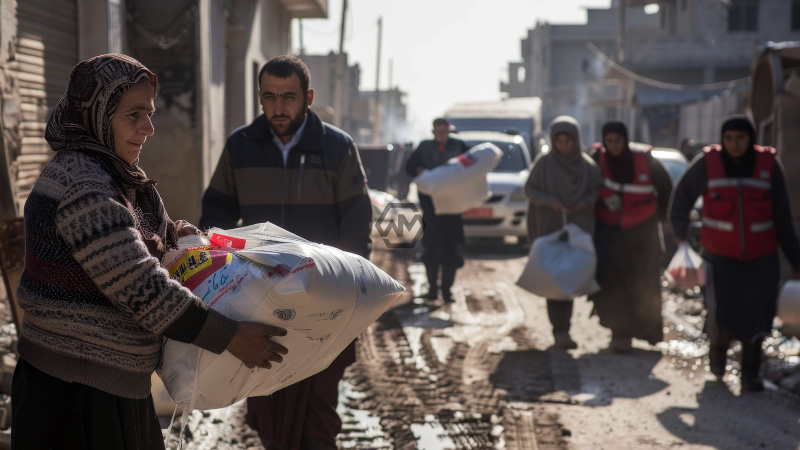- Israel admits civilians were harmed at Gaza aid centers and issues new military guidelines.
- Over 400 Palestinians have died seeking food since Israel eased the blockade in May.
- U.N. and Israel clash over the U.S.-backed aid model amid allegations of militarized distribution.
The Israeli military has publicly acknowledged that Palestinian civilians were injured at humanitarian aid distribution sites in Gaza. Following growing international criticism and documented incidents, Israel stated it had conducted internal reviews and issued updated field orders in response to what it called “lessons learned.”
The humanitarian fallout has also exposed deep tensions between international bodies. U.N. Secretary-General António Guterres condemned the U.S.-backed Gaza Humanitarian Foundation (GHF), calling its aid delivery system “inherently unsafe” and a direct cause of civilian deaths.
Aid or Agony: Civilian Toll Rises in Gaza as Israel Revises Military Protocols
In the latest escalation, Israeli airstrikes across the Gaza Strip claimed at least 85 lives, targeting not only military suspects but also aid seekers and families sheltering in schools. One of the deadliest strikes occurred near Gaza’s main seaport, a refuge for displaced civilians, including women and children. According to field reporters, these attacks have turned supposed safe zones into scenes of devastation.
A separate Israeli strike hit the courtyard of Al-Aqsa Hospital in Deir el-Balah, where thousands of displaced residents had gathered for shelter. Footage from the aftermath showed tents destroyed and panicked families fleeing in chaos. No advance warning was reportedly issued before the explosion. Human rights groups have called for immediate investigations into these incidents under international humanitarian law.
The U.S.-backed GHF, central to the current aid distribution strategy, claims that no deaths have occurred directly at its distribution points. However, U.N. officials counter that the model forces desperate civilians into high-risk zones, often without adequate safeguards. This has sparked a broader debate over the politicization of aid in conflict zones, as well as the role of foreign governments in humanitarian logistics.
The situation stems from the aftermath of the October 7, 2023 Hamas-led attacks on Israel, which killed 1,200 people and triggered a massive military response. Since then, more than 56,000 Palestinians—predominantly civilians—have died, according to local health authorities. As the humanitarian crisis worsens, calls for an immediate and neutral ceasefire grow louder, with renewed international efforts underway to end hostilities and restore safe access to aid.
As international pressure mounts, the humanitarian cost of the Gaza conflict continues to rise, revealing the urgent need for depoliticized, secure aid mechanisms.
“Wherever the art of medicine is loved, there is also a love of humanity.” — Hippocrates



